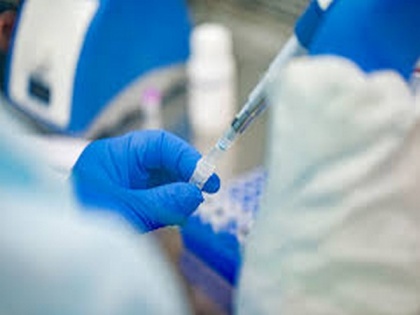Sero Survey: Antibody prevalence rate at 5.15 per cent in Bhubaneswar
By ANI | Published: September 5, 2020 01:10 AM2020-09-05T01:10:09+5:302020-09-05T01:25:02+5:30
The second phase of the sero surveillance conducted across 25 wards of the Temple City has found the antibody prevalence rate at 5.15 per cent.

Sero Survey: Antibody prevalence rate at 5.15 per cent in Bhubaneswar
The second phase of the sero surveillance conducted across 25 wards of the Temple City has found the antibody prevalence rate at 5.15 per cent.
The low prevalence of antibody in the community serological study by Regional Medical Research Centre (RMRC) indicates that the state capital could be "one of the protected cities'' with respect to the COVID-19 virulence across the country.
Speaking on the results of the survey by RMRC under the Indian Council of Medical Research (ICMR) prescribed guidelines, Commissioner Bhubaneswar Municipal Corporation (BMC) Prem Chandra Chaudhary said, "The less prevalence of the antibody in the city population indicates that still there is a high risk of infection in near future and thus the city is currently experiencing a spike in the COVID-19 positive cases."
However, the BMC Commissioner urged the citizens to continue adherence to the COVID-19 protocol of wearing masks appropriately, keeping a minimum of 2-metre social distancing norms in public places and strict no to crowding so that we would keep Corona at bay.
It can be mentioned here that during the two-day-long community serological study by RMRC on August 28 and 29 the city-based research institute of ICMR targeted to collect 1,500 samples but actually received 1,320 samples from various locations from where the Phase I samples were collected earlier.
Unlike other three types of tests conducted across the city to know the positive or negative status of an affected individual due to COVID-19, this serological surveillance test provides insights into the community exposure levels which were found very low even during the first phase with 1.42 per cent. In fact, technically, after 28 days of the first serological surveillance, the second one is to be conducted as per the ICMR guidelines.
The community exposure to COVID-19 virus was relatively low in the city due to a plethora of enforcement measures taken by the civic body like enforcement and campaign to more use of masks, practising physical distancing, frequent washing of hands and creating community awareness by public addressable system through 10 IEC vehicles engaged by BMC.
A large majority of the population is still susceptible to the infection and hence all preventive measures under COVID-19 protocol is need of the hour.
( With inputs from ANI )
Disclaimer: This post has been auto-published from an agency feed without any modifications to the text and has not been reviewed by an editor
Open in app